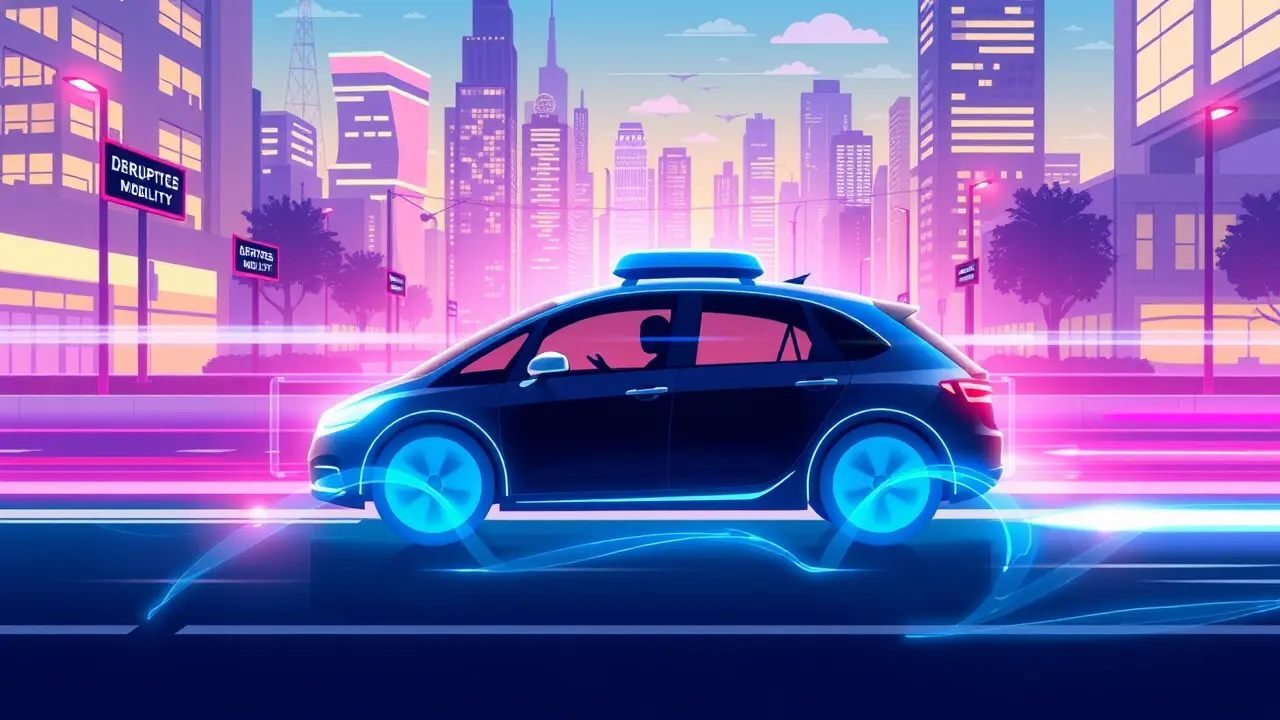
Otherauto & mobilityElectric Vehicles
TechCrunch Mobility: Disrupt 2025 Transportation Insights
AN
Andrew Blake
13 hours ago7 min read
Welcome back to TechCrunch Mobility, your central hub for news and insights on the future of transportation, a topic that feels less like a simple industry beat and more like the central nervous system of our modern world, a sprawling, chaotic, and utterly fascinating network of metal, code, and human ambition that is being rewired in real-time. To truly grasp the disruptions promised for 2025, you have to pull back from the headlines about the latest electric vehicle (EV) battery density or a new flying taxi prototype and look at the historical currents that brought us here.The automobile's ascent in the early 20th century didn't just replace the horse; it reshaped cities, birthed suburbs, created the oil economy, and defined a century of American culture. What we are witnessing now is a transformation of similar, if not greater, magnitude, a convergence of multiple technological S-curves all hitting their inflection points simultaneously.The electrification of the powertrain, a shift championed by Tesla's relentless push but now embraced by every legacy automaker from General Motors to Volkswagen, is just the first layer. It's the foundational change that enables everything else, turning the car from a mechanical marvel into a rolling computer on wheels, a platform for software updates and data harvesting.This is where the real battle for 2025 is being fought—not on the assembly line, but in the data centers and software development kits of companies like Google's Waymo, Amazon's Zoox, and a host of ambitious Chinese players like Baidu's Apollo. The dream of full autonomy, Level 5, remains a distant horizon, a kind of technological Everest that has proven far more treacherous to climb than the early optimists of the 2010s predicted.The challenges are not merely technical, involving the dizzying complexity of teaching an AI to navigate the infinite edge cases of real-world driving, but deeply philosophical and regulatory. How does an algorithm make a moral choice in a split-second accident scenario? Who is liable when there is no 'driver'? The recent, cautious rollouts of robotaxi services in controlled geofenced areas like San Francisco and Phoenix offer a glimpse of a possible future, but they have also exposed a raw nerve in the social contract between technology and society, leading to public backlash, vandalized vehicles, and intense scrutiny from city councils and federal agencies like the NHTSA.Meanwhile, the parallel universe of micromobility—a term that barely existed a decade ago—continues its own chaotic evolution. The rise and fall and stubborn persistence of companies like Bird and Lime demonstrated both the voracious appetite for short-trip solutions and the immense difficulty of building a sustainable business model around dockless e-scooters and e-bikes.In 2025, the conversation is maturing from mere convenience to integration; the success of these 'last-mile' solutions is increasingly dependent on their seamless connection with public transit systems, a challenge that requires deep partnerships with municipal governments and a level of urban planning that the 'move fast and break things' Silicon Valley ethos often clashes with. Look at cities like Paris and its massive investment in cycling infrastructure, or Singapore's holistic approach to transit-oriented development, and you see a different model emerging, one where technology serves a broader urban vision rather than disrupting it for disruption's sake.And then there is the third, often overlooked, pillar of the mobility revolution: supply chain and logistics. The global pandemic was a brutal stress test that revealed the fragility of our just-in-time delivery systems, and the response has been a massive, behind-the-scenes investment in automation and AI-driven optimization.Companies like Flexport and Convoy are building digital freight networks that aim to do for shipping what Uber did for personal transport—create efficiency through a centralized platform. In ports from Long Beach to Rotterdam, autonomous stacking cranes and driverless terminal trucks are becoming the norm, slowly creating a more resilient, if less human-centric, global goods movement system.The geopolitical implications are staggering, as control over the core technologies of this new mobility ecosystem—from the lithium-ion batteries dominated by Chinese manufacturers like CATL to the semiconductor chips for advanced driver-assistance systems (ADAS) designed in the US and fabricated in Taiwan—becomes a key lever of national power and economic security. The United States' Inflation Reduction Act, with its strong domestic manufacturing incentives for EVs and batteries, is a direct response to this reality, an attempt to onshore a critical industry and counter China's decade-long head start.So, when we talk about TechCrunch Mobility and the insights for 2025, we are not just talking about faster cars or new apps. We are talking about a fundamental re-architecting of how humans and goods move across the planet, a multi-trillion-dollar reordering of one of the most basic human activities.It is a story of competing visions: the tech-utopian ideal of a perfectly efficient, algorithmically-managed transportation grid versus the messy, political, and deeply human reality of our cities and societies. The disruptions of 2025 will not arrive as a single, clean event, but as a series of fits and starts, of technological breakthroughs followed by regulatory reckonings, of triumphant product launches and quiet business failures. The only certainty is that the landscape of mobility in five years will be as unrecognizable to us today as the world of horse-drawn carriages would be to a driver in the heyday of the Interstate Highway System.
#TechCrunch Disrupt 2025
#future of transportation
#mobility startups
#automotive innovation
#electric vehicles
#autonomous cars
#featured
Stay Informed. Act Smarter.
Get weekly highlights, major headlines, and expert insights — then put your knowledge to work in our live prediction markets.
© 2025 Outpoll Service LTD. All rights reserved.